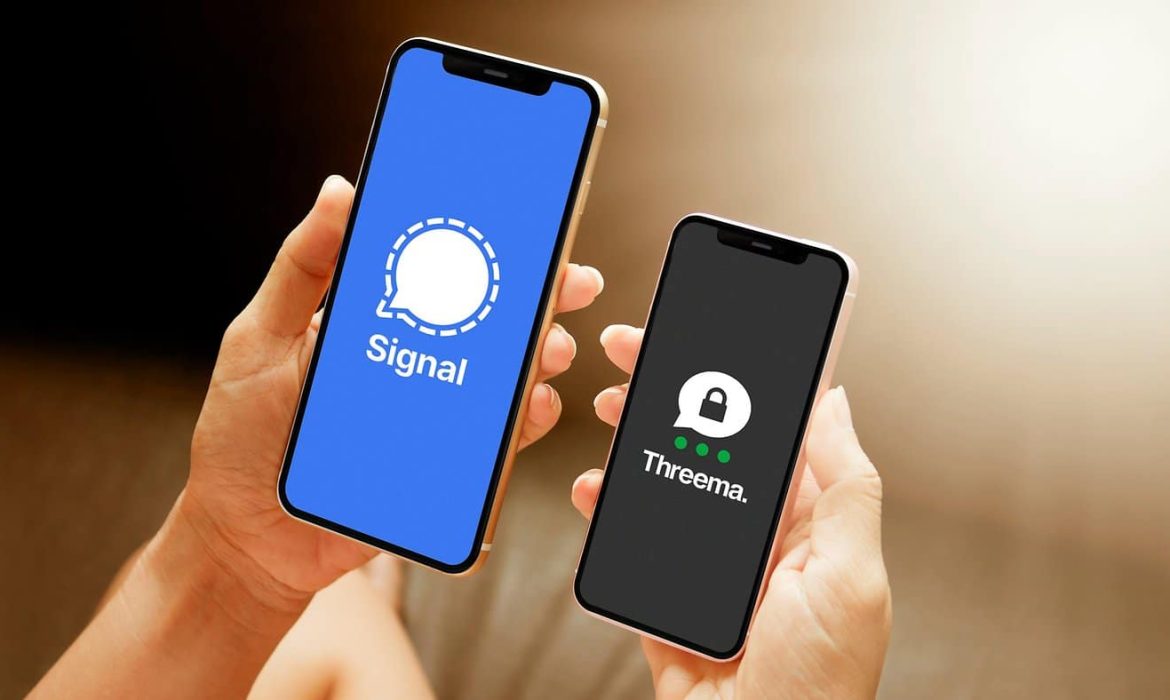
In recent years, the concern over data privacy has reached new heights. With increasing surveillance, cyber attacks, and data breaches, people are becoming more cautious about their digital footprints. This has led to the rise of privacy-centric messaging apps like Threema and Signal.
According to a report by Business Insider, Signal’s user base grew by 4,200% in 2020 alone. In the wake of WhatsApp’s controversial privacy policy update, which allowed it to share data with its parent company, Facebook, Signal, and Threema have emerged as strong contenders in the privacy-driven messaging market.
Threema vs Signal – Feature-wise comparison
Encryption Quality
Both Threema and Signal use end-to-end encryption to protect user messages from prying eyes. However, Signal’s encryption protocol is considered to be the gold standard in the industry, as it is open-source and has been independently audited by security experts.
Threema’s encryption, on the other hand, is proprietary, and while it is still considered secure, it has not undergone the same level of scrutiny as Signal’s encryption.
User Experience
When it comes to user experience, Signal’s interface is clean and minimalist, making it easy to use.
Threema, on the other hand, has a slightly more complex interface, with a range of customization options that allow users to adjust the app’s appearance to their liking. However, this customization comes at the cost of simplicity, and some users may find Threema’s interface overwhelming.
Centralized vs Decentralized
Signal is a centralized messaging app, which means that all user data is stored on Signal’s servers. While this may sound like a privacy concern, Signal has a strong track record of protecting user data, and the company has repeatedly demonstrated its commitment to privacy.
Threema, on the other hand, is a decentralized messaging app, which means that user data is stored locally on each user’s device. This makes Threema more private by design, but it also means that users are responsible for keeping their own data secure.
Also Read – Datadog vs. Splunk – Which Is Better for Infrastructure Monitoring?
Cross-Platform Support
Both Threema and Signal are available on multiple platforms, including iOS, Android, and desktop.
However, Signal has the advantage of being available on more platforms than Threema, with apps also available for iPad, Chrome, and even Linux.
Other Features
In terms of additional features, both Threema and Signal offer a range of options to enhance user privacy.
For example, both apps allow users to set disappearing messages so that messages automatically delete after a set period of time.
Signal also offers a feature called “incognito keyboard,” which prevents other apps from accessing the keyboard input while using Signal.
Conclusion
When it comes to Threema vs Signal, both apps are strong contenders in the privacy-driven messaging market. Signal’s encryption protocol is considered the gold standard in the industry, and the app’s minimalist interface makes it easy to use.
Threema, on the other hand, offers a range of customization options, and its decentralized design makes it more private by design. Ultimately, the choice between Threema and Signal comes down to personal preference, and users should evaluate each app’s features and design to determine which one best meets their needs.



